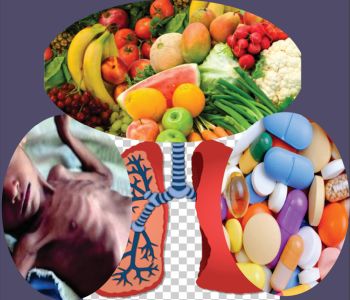The association and interactions of malnutrition, micronutrients, and drug therapy in the management of tuberculosis
Abstract
Tuberculosis is an infectious lung disease that is the leading cause of death worldwide. Globally, over 3,500 people lose their lives to tuberculosis each day – totalling 1.3 million deaths each year. Mycobacterium tuberculosis is the acid-fast bacteria that causes tuberculosis. Fever, coughing, exhaustion, and weight loss are among the symptoms that patients with tuberculosis display. Tuberculosis is transmitted from person to person by inhaling airborne droplets. Immune compromised individuals are at high risk for developing tuberculosis. Direct microscopy of sputum smears and solid media cultures are used as tuberculosis diagnostic techniques. The global effort to combat tuberculosis has so far saved an estimated 75 million lives since 2000. The present review focuses on the association between malnutrition and tuberculosis, micronutrient status, and drugs used in tuberculosis therapy. The greatest risk factor for TB is malnutrition, which weakens immunity by lowering the cells' ability to fight off infections. Many micronutrients are useful in controlling tuberculosis and boosting the host's immunity. These include copper, zinc, selenium, iron, vitamin A, vitamin C, vitamin D, vitamin B6, and vitamin E. Furthermore, the longevity of patients in intensive care units (ICUs) depends on their micronutrient status. Several medications, such as isoniazid, ethambutol, rifabutin, levofloxacin, amikacin, streptomycin, and capreomycin, are used to treat tuberculosis for a certain period of time. Anti-tuberculosis medications can cause vitamin B6 deficiency, arthralgias, gastrointestinal issues, hepatotoxic effects, and allergic reactions as adverse effects. The United Nations Sustainable Development Goals (SDGs) aimed to end the global tuberculosis epidemic by 2023 but more work remains to be done.

Authors retain all copyrights. In making a submission to World Nutrition, they are certifying that all material is theirs except quotations, as indicated, and that they have obtained permission for any photos, tables, or graphics taken from other publications or websites.




